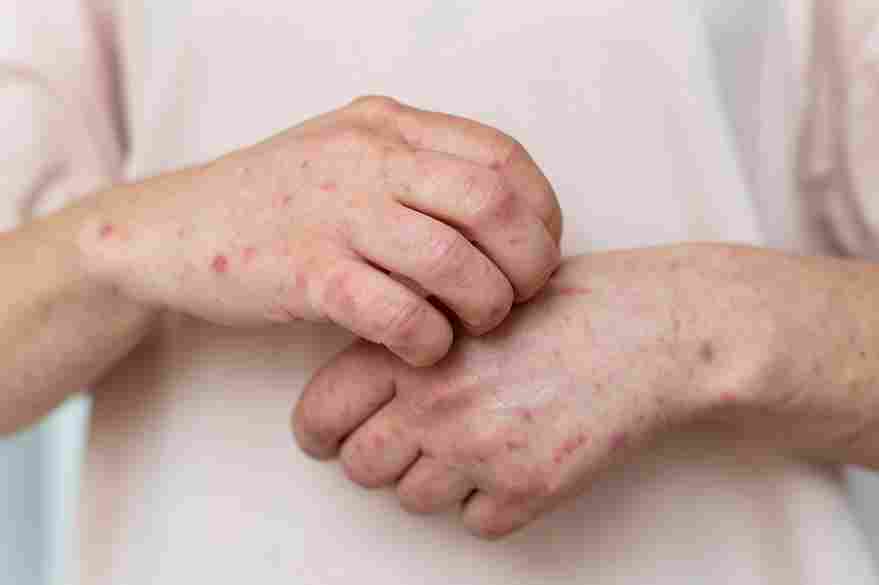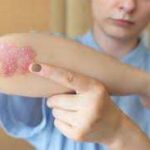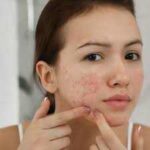Want to know about the treatment for your eczema type? Let’s discuss the different types of eczema, their symptoms, and treatment options.
Eczema is a skin disorder that can make the skin red, itchy, and inflamed and leads to a mild burning sensation. It is a non-infectious skin condition that can be caused by a person’s nervous system, the allergic state of the body, hereditary factors, and environmental factors.
Eczema can affect people of any age, and its symptoms can appear anywhere on the skin. People with eczema notice symptoms like dry and sensitive skin, scaly patches, and oozing or crusting blisters. However, a person with a light skin tone experiences a pink, red, or purple rash, while a person with a dark skin tone can have a purple, grey, or brown eczema rash.
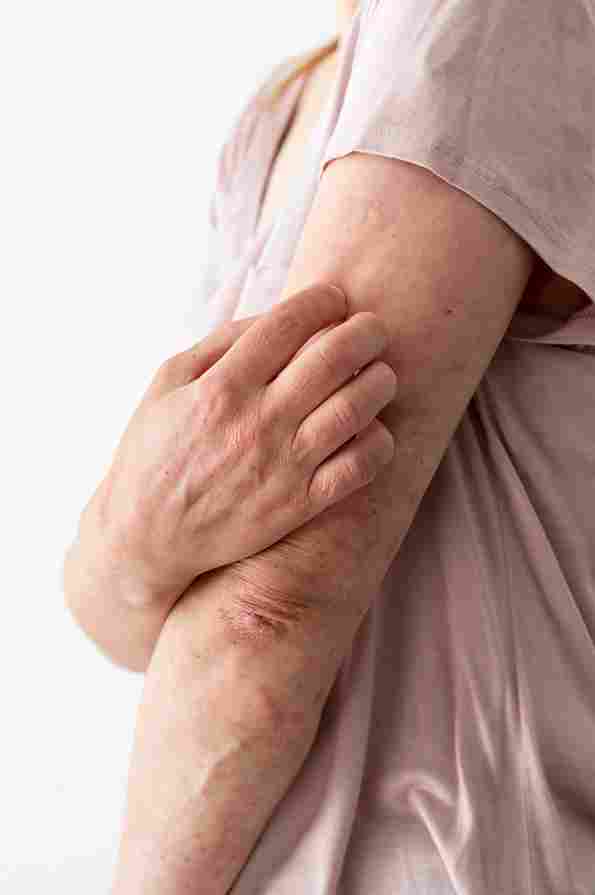
Treatments for eczema are aimed at preventing flare-ups and symptoms from getting worse. There are many treatment options and home remedies available that can manage the symptoms, including natural gels, oils, therapeutic baths, and dietary changes. In addition to that, a person should consult a doctor to look out which treatment is best for different types of eczema.
Types of Eczema
Eczema can be classified into different types depending on the symptoms and how long it persists. Each eczema type has its symptoms; therefore, it is essential to know its type to seek better treatment options to manage symptoms before they get worse.
- Atopic Eczema
Atopic eczema, or atopic dermatitis, is the most common form of eczema found mostly in children under the age of 10. But, it may develop in adults too and make skin dry, itchy, and cracked. Atopic dermatitis is considered a long-term (chronic) condition; although it can improve or even clear completely over time.
Areas that are prone to atopic eczema are behind the knees and chest, and by regularly scratching the infected skin, it may become sensitive.
Symptoms:
- Small bumps
- Rashes in the creases of the elbows and knees
- The infected areas may turn lighter, darker, or thicker
- Discoid eczema
Discoid eczema, also known as nummular or discoid dermatitis, causes inflammation, itching, and crusty patches on the skin that ooze pus. It can affect any part of the body, mostly the face or scalp.
When you notice small spots or bumps on the skin, you may be at the initial stage of developing discoid eczema. These small spots develop over time and can form larger patches on the skin.
Symptoms:
- The patches are oozing out fluid
- Feeling hot or shivery
- Development of yellow crust over the patches
- Contact Dermatitis
A skin condition that makes skin red and inflamed after encountering any allergen or an irritant. Contact dermatitis can affect people of any age, from a baby to an adult. People with sensitive skin or chronic skin conditions experience contact dermatitis more often.
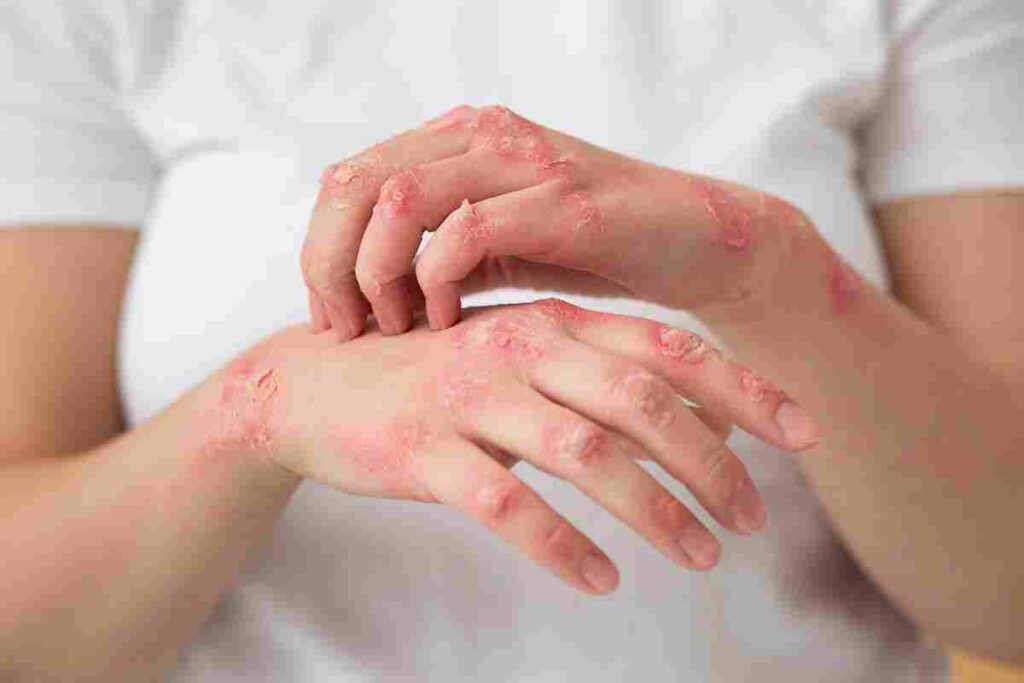
Symptoms:
- Painful rashes with a burning sensation
- Flaky or scaling
- Red or purple patches on the skin
In most cases, contact dermatitis heals on its own if you can avoid contact with the substances that caused it.
(Also Read: Eczema treatment: Natural remedies & Panchakarma Therapy (ayursparshclinic.com))
- Xerotic Eczema
Xerotic eczema, also known as Asteatotic eczema, is a form of eczema that usually develops when your skin becomes extremely dry. This chronic skin condition can appear anywhere on the body, but it is mostly seen on the arms, legs, and torso.
Xerotic eczema occurs when your epidermis continues to lose water and develops fissures on the skin that appear red, and patterned lines.
Symptoms:
- Lesions along the legs
- A hard, rough texture in affected areas
- A patchy, venous appearance
- Red and scaly
CONCLUSION
Eczema is a skin condition that causes itchy, dry skin with red patches or bumps in the affected regions. A person diagnosed with eczema experiences dryness, itchiness, and rashes on their skin. It can affect various body parts, such as the hands, legs, scalp, and nose.
There are various types of eczema, depending on the location of their occurrence and symptoms, such as xerotic eczema, atopic dermatitis, discoid eczema, and others.
Treatments for eczema include medications and herbal remedies, and these can provide relief from the symptoms.
Get treated for all the different types of eczema at Ayursparsh Clinic and Panchakarma Centre, the best wellness centre in Dharwad, Karnataka. Contact Dr Rashmi Patil to get your personalised psoriasis treatment plan.

